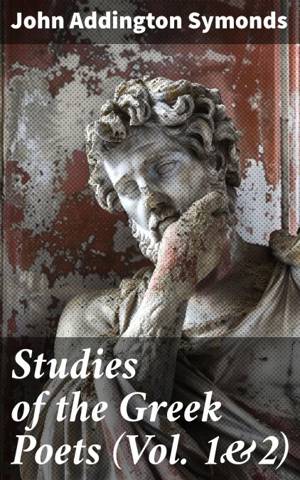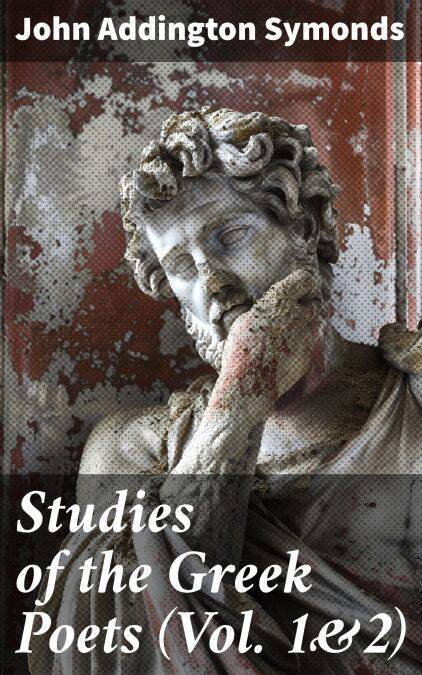
- Afhalen na 1 uur in een winkel met voorraad
- Gratis thuislevering in België vanaf € 30
- Ruim aanbod met 7 miljoen producten
- Afhalen na 1 uur in een winkel met voorraad
- Gratis thuislevering in België vanaf € 30
- Ruim aanbod met 7 miljoen producten
Zoeken
Studies of the Greek Poets (Vol. 1&2) E-BOOK
Complete Edition
John Addington Symonds
E-book | Engels
€ 1,99
+ 1 punten
Omschrijving
In "Studies of the Greek Poets (Vol. 1&2)," John Addington Symonds delves into the intricate world of ancient Greek literature, offering a profound analysis of the works of poets such as Homer, Sappho, and Pindar. Symonds's literary style is characterized by its elegance and depth, combining a meticulous examination of the poetic text with a passionate engagement with its historical and cultural contexts. His exploration of themes such as beauty, love, and the human experience provides readers with an enriching perspective on the significance of these poets in the tapestry of Western literature. John Addington Symonds, a Victorian poet, biographer, and literary critic, was profoundly influenced by his own struggles with identity and societal norms, which led him to explore themes of individuality and beauty in his work. His scholarship is underscored by a groundbreaking perspective on aestheticism and homoeroticism, reminiscent of the very themes prevalent in ancient Greek poetry. Symonds'Äô scholarly pursuits not only reflect his academic rigor but also his personal quest for authenticity and understanding in a repressive society. This work is recommended for both scholars and enthusiasts of classical literature, as it unveils the timeless relevance of Greek poetry while inviting readers to partake in Symonds's own journey of discovery. His analyses inspire a renewed appreciation for these foundational texts, making it essential reading for anyone looking to deepen their understanding of the literary heritage of the ancient world.
Specificaties
Betrokkenen
- Auteur(s):
- Uitgeverij:
Inhoud
- Aantal bladzijden:
- 735
- Taal:
- Engels
Eigenschappen
- Productcode (EAN):
- 8596547779261
- Verschijningsdatum:
- 14/12/2023
- Uitvoering:
- E-book
- Beveiligd met:
- Digital watermarking
- Formaat:
- ePub

Alleen bij Standaard Boekhandel
+ 1 punten op je klantenkaart van Standaard Boekhandel
Beoordelingen
We publiceren alleen reviews die voldoen aan de voorwaarden voor reviews. Bekijk onze voorwaarden voor reviews.











